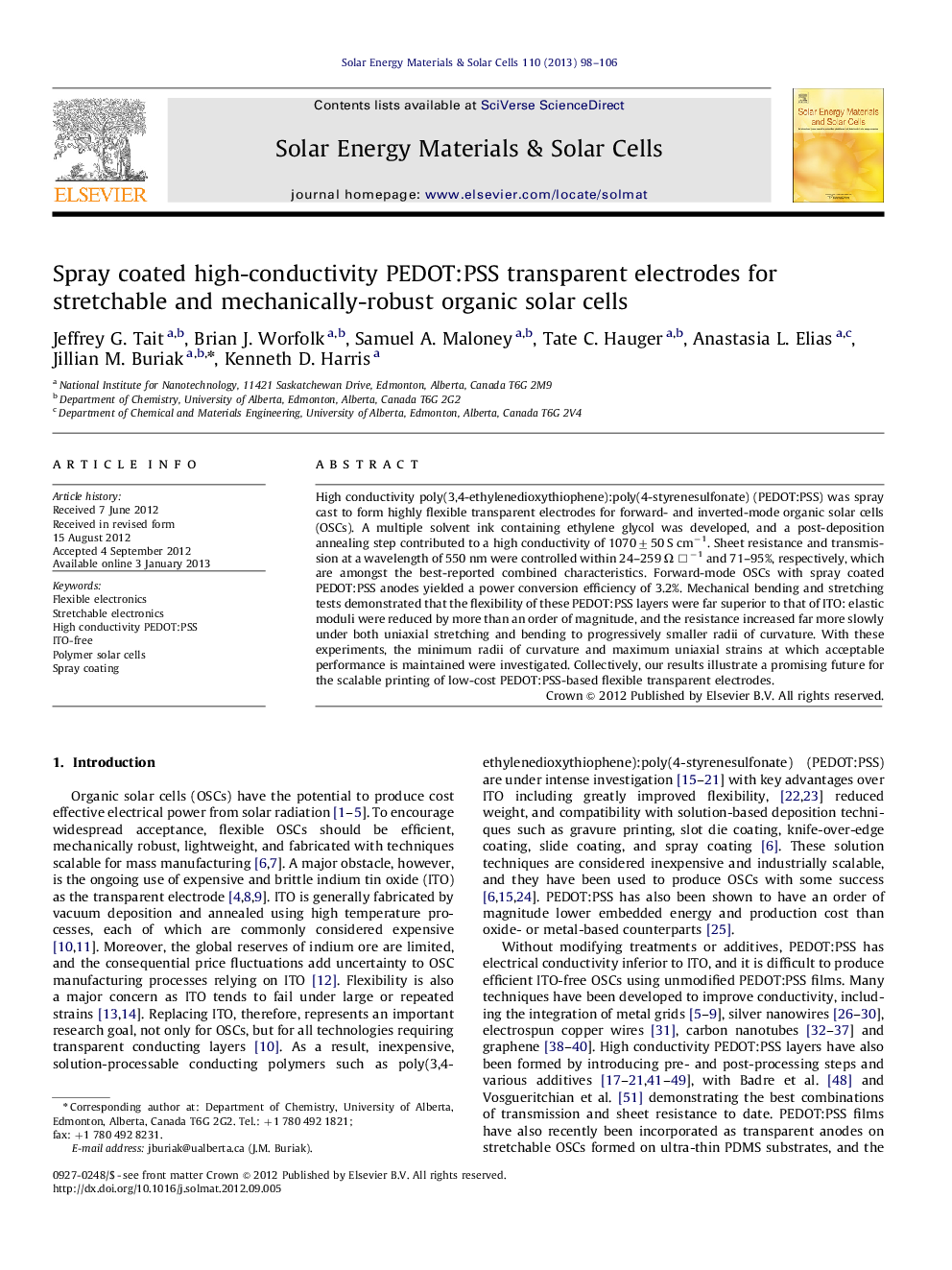| Article ID | Journal | Published Year | Pages | File Type |
|---|---|---|---|---|
| 78592 | Solar Energy Materials and Solar Cells | 2013 | 9 Pages |
High conductivity poly(3,4-ethylenedioxythiophene):poly(4-styrenesulfonate) (PEDOT:PSS) was spray cast to form highly flexible transparent electrodes for forward- and inverted-mode organic solar cells (OSCs). A multiple solvent ink containing ethylene glycol was developed, and a post-deposition annealing step contributed to a high conductivity of 1070±50 S cm−1. Sheet resistance and transmission at a wavelength of 550 nm were controlled within 24–259 Ω □−1 and 71–95%, respectively, which are amongst the best-reported combined characteristics. Forward-mode OSCs with spray coated PEDOT:PSS anodes yielded a power conversion efficiency of 3.2%. Mechanical bending and stretching tests demonstrated that the flexibility of these PEDOT:PSS layers were far superior to that of ITO: elastic moduli were reduced by more than an order of magnitude, and the resistance increased far more slowly under both uniaxial stretching and bending to progressively smaller radii of curvature. With these experiments, the minimum radii of curvature and maximum uniaxial strains at which acceptable performance is maintained were investigated. Collectively, our results illustrate a promising future for the scalable printing of low-cost PEDOT:PSS-based flexible transparent electrodes.
Graphical abstractFigure optionsDownload full-size imageDownload as PowerPoint slideHighlights► A spray coating procedure was developed for high conductivity PEDOT:PSS electrodes. ► Forward-mode organic solar cells based on PEDOT:PSS electrodes obtained 3.2% efficiency. ► The mechanical properties of PEDOT:PSS are suitable for flexible and stretchable electronics. ► The failure of PEDOT:PSS-based solar cells occurs via cathode delamination.
